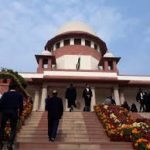The petition concerns a case originating from a civil suit for specific performance of a sale agreement, which had previously been dismissed by a Trial Court and an appeal against that dismissal was also dismissed by the High Court of Madras. The central legal question revolves around the application of Section 12 of the Specific Relief Act, 1963, particularly concerning the possibility of granting specific performance of only a part of a contract and whether the relinquishment of claims can occur at a later stage in the litigation. The Supreme Court ultimately dismissed the petition, upholding the lower courts’ findings that the plaintiff was not ready and willing to fulfill their contractual obligations, thus not entitled to the benefit of Section 12(3) of the Act, but clarifying that relinquishment of claims can be made at any stage of litigation.
(A) Specific Relief Act, 1963, Section 12(3) – Specific performance of part of contract – Words ‘unable to perform’ – Provision contained in Section 12 of the Act makes it clear that it is not open to the High Court to direct specific performance of a part of contract except otherwise provided in the section in absence of any of the exigencies available under the provisions of sub-sections (2), (3) and (4) of Section 12 so as to decree the suit – The words ‘unable to perform’ suggest that the sub-section is applicable only when the party cannot for any reason perform the whole of what he has promised – The inability may arise by any cause whatsoever including any statutory limitations – The inability to perform may arise by— (i) deficiency in quantity of the subject-matter, or (ii) variance in quality, or (iii) defect in title; or (iv) some legal prohibition; or (v) other causes.
(Para 10 and 11)
(B) Specific Relief Act, 1963, Section 12(3) – Specific performance of part of contract – Expression ‘considerable part’ – Held that the expression ‘considerable part’ implies that the part which will be left unperformed is either large as regards quantity or as regards quality – In other words, it is material and not insignificant, so that a reasonable objection can be taken by the promisee to accept performance – The phrase ‘does not admit of compensation’ implies that there is no data for ascertaining a fair and reasonable amount as the money value of the difference between what can be performed and the express subject-matter of the contract – The amount need not be mathematically accurate – If a reasonable estimate of the amount as the money value can be made, it will not be a case where the compensation is unascertainable – The power to grant partial relief, from the very language of Section 12(3) of the Act is discretionary with the court to be exercised keeping in view the facts and circumstances of each case and the rights and interests of the parties involved – Section 12(3) of the Act can be invoked only where the terms of contract permit segregation of rights and interests of parties in the property.
(Para 12 and 13)
(C) Specific Relief Act, 1963, Section 12(3) – Specific performance of part of contract – Compensation – Specific finding recorded by the courts below that the plaintiff was not ready and willing to perform his part of the contract and the plaintiff being in default he could not be said to be entitled to invoke Section 12(3) of the Act also – The amount of Rs.20,00,000/- which came to be deposited by the defendants in the Trial Court in the form of refund of the earnest money to the original plaintiff must have been invested by the Court concerned with any bank by way of fixed deposit receipt, the said amount shall be refunded to the petitioner – herein (original plaintiff) within a period of four weeks from today with the accumulated interest as awarded by the Court below.
(Para 14 and 24)
(D) Specific Relief Act, 1963, Section 12(3) – Specific performance of part of contract – Compensation – High Court expressed doubt whether the plea as regards Section 12 of the Act if not raised before the Trial Court could have been raised for the first time before the High Court in first appeal – Held that the relinquishment of claim to further performance of the remaining part of the contract and all rights to compensation can be made at any stage of litigation – The position of law is that relinquishment could be made at any stage of the litigation including the appellate stage – The claim of the plaintiff appellant for grant of benefit under Section 12(3) of the Act was, therefore, rightly not rejected by the High Court on the simple ground that it was not made at the trial stage and had been made for the first time at the appellate stage – Claim can also not be rejected on the short ground that it was not incorporated in the plaint or was not get forth in writing before the Trial Court – No error not to speak of any error of law could be said to have been committed by the High Court in passing the impugned order – Special Leave Petition fails and liable to be dismissed.
(Para 17 to 23)
Vijay Prabhu v. S.T. Lajapathie & Ors.
Supreme Court: 2025 INSC 52: (DoJ 8-01-2025)






